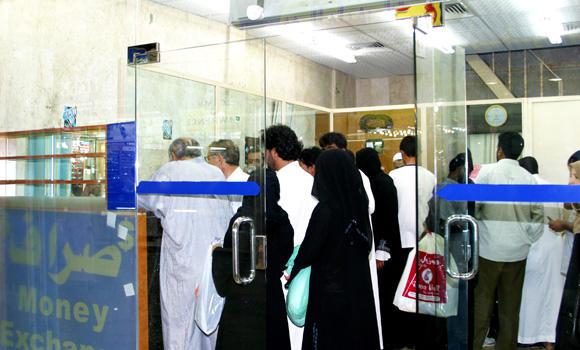
Jeddah, Jun 16: Remittances from Saudi Arabia by expatriate workers to their home countries are likely to decline due to the new labor laws, according to Fadhel Albuainain, economist and banking expert.
“The launch of the new, accurate labor system and the implementation of the salary protection program in the future will help reduce the amount of transferred money out of the Kingdom by expatriates,” he said.
“There is no doubt that the nearly SR 110 billion sent out of the country so far is a big loss for the Kingdom's economy,” he added.
According to the recently released Migration and Development Brief 2012 of the World Bank's Migration and Remittance Unit, Saudi Arabia contributed the highest share of remittances in 2012. The amount was estimated at $ 24.18 billion, accounting for 39 percent of the GCC's total remittances, followed by the UAE, where remittances reached $ 18.21 billion, contributing to 29.8 percent of the GCC's total remittances.
The Kingdom is the largest among the GCC countries in both oil production and population. The Kingdom's remittance rate is the highest among the Gulf countries mainly due to the country's large expat population, estimated at 8 million by the General Department of Statistics.
Albuainain said he is optimistic about the recent move by the Labor Ministry to create a database for workers' salaries. This, he said, would reduce the remittance rate.
“Most expatriates with iqamas transfer their money officially through the Saudi Arabian Monetary Agency, which monitors the amount of money that each expat wants to send and compares it with his salary. If he transfers more than his salary, he will be investigated,” Albuainain said, adding that illegally transferred money is mostly sent by illegal expatriates who do not have iqamas.
“They send their money with the help of loan traffickers. In most cases, this money comes from an illegal source. However, if the Labor Ministry succeeds in arresting illegals, the illegally remitted amount will come down by SR 10 billion,” said Albuainain.
He said the Labor Ministry’s main challenge in the next stage is to control illegally transferred money.
The economist advised the Ministry of Kabor to minimize the number of illegal expatriates in order to decrease the amount of transferred money.
“We can provide a healthy environment for expatriates to invest in the stock market. Expatriates are now afraid of the stock market because of the huge losses it registered recently. When we activate this sector and provide a better working environment, we can attract them to invest safely in Saudi Arabia,” he said.
Hattab Al-Enizi, spokesman of the Labor Ministry, told Arab News that the wage protection program will officially start on July 1. It aims to include companies that have more than 3,000 employees, while smaller companies will be gradually included in the new system.






Comments
Add new comment